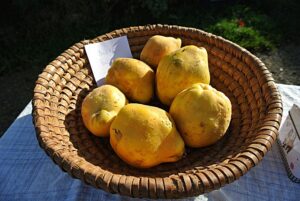Composting organic kitchen scraps and yard waste reduces environmental impact by improving soil health, enhancing plant growth, and lowering costs related to yard waste removal and recycling. Gardeners can balance their love for greenery with sustainability by composting materials like leaves, grass clippings, and twigs, thereby diverting waste from landfills and contributing to a circular economy. Effective compost creation involves balancing green and brown materials, regular turning, and maintaining moisture levels for optimal decomposition.
Compost creation is a garden enthusiast’s secret weapon for fertile, healthy soil. This natural process turns organic yard waste into a nutrient-rich resource that enhances plant growth and reduces environmental impact. In this guide, we’ll explore the benefits of composting, unravel the basics of effective collection and recycling of yard waste, and uncover optimal conditions for efficient decomposition – transforming your garden’s footprint into its greatest asset.
- Understanding Compost: Benefits and Basics for Gardeners
- Yard Waste Collection: What to Recycle and How
- Creating Optimal Conditions for Effective Decomposition
Understanding Compost: Benefits and Basics for Gardeners

Compost is a natural wonder that every gardener should harness. Beyond just decomposed organic matter, it’s a nutrient-rich resource that enhances soil health, promotes plant growth, and reduces yard waste removal and recycling costs. By understanding compost creation, gardeners can transform their organic kitchen scraps and yard waste into a valuable asset for their green oasis.
The benefits are clear: improved soil structure, increased microbial activity, and better water retention. This dynamic trio paves the way for healthier plants with stronger root systems and vibrant blooms or lush foliage. For eco-conscious gardeners, composting is also an act of sustainability, diverting organic waste from landfills and reducing environmental impact. It’s a simple yet powerful practice that forms the foundation for a thriving garden ecosystem.
Yard Waste Collection: What to Recycle and How

Many garden enthusiasts aim to reduce their environmental impact while nurturing their green spaces, and a significant step in this journey is understanding yard waste collection and recycling. Yard waste removal isn’t just about aesthetics; it’s an eco-friendly practice that keeps communities sustainable. When it comes to what can be recycled, the list includes leaves, grass clippings, small twigs, and even garden trimmings from shrubs and trees. These organic materials are ideal for composting, which creates nutrient-rich soil amplifiers for gardens.
The process of yard waste recycling is straightforward. Gardeners can set up compost bins or use designated municipal collection points where these organic materials are collected, processed, and transformed into valuable compost. By participating in this practice, enthusiasts not only reduce the amount of waste sent to landfills but also contribute to a circular economy, fostering a healthier environment for future generations while enhancing their gardening prowess.
Creating Optimal Conditions for Effective Decomposition

Creating optimal conditions is key to effective decomposition in your compost pile. This means providing the right balance of green and brown materials, ensuring proper aeration, and maintaining a consistent moisture level. Green materials, such as fruit and vegetable scraps, grass clippings, and coffee grounds, are rich in nitrogen and encourage rapid growth of decomposers. Brown materials like dry leaves, straw, and cardboard provide carbon, essential for the decomposition process to proceed smoothly.
Aeration is crucial as it allows oxygen to reach the microorganisms that break down the waste. Regularly turning the pile helps introduce air and prevents the buildup of unpleasant odors. Moisture content should be similar to a wrung-out sponge—not too wet and not too dry. This environment fosters rapid decomposition, transforming yard waste into nutrient-rich compost that can enhance soil health and promote sustainable gardening practices through effective yard waste removal and recycling.
Compost creation is a rewarding practice for garden enthusiasts, offering a sustainable solution for yard waste removal and recycling. By understanding the benefits of composting and following optimal conditions for decomposition, gardeners can contribute to a greener environment while enhancing their garden’s health. Incorporating compost into your gardening routine not only reduces waste but also provides essential nutrients, fostering lush plant growth and a vibrant ecosystem.






